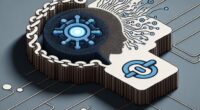Running Out of AI Training Data? Elon Musk Claims The World Is Facing a Shortage at CES 2025
Elon Musk, the renowned tech billionaire and head of the Department of Government Efficiency (DOGE), has thrown the tech world into a whirlwind with his latest declaration. According to Musk, the world is facing an unexpected scarcity of human-generated data suitable for AI training. Speaking at CES 2025, he stated that the training data supply that AI has heavily relied upon is now almost depleted, a situation he believes arose as early as last year.
The bold announcement emerged during an interview with Stagwell CEO, Mark Penn, covering an array of topics, including the ever-evolving field of artificial intelligence. Although Musk’s engagement with AI is relatively recent, particularly with his company xAI being less than two years old, his observations reflect broader industry concerns. Recently, OpenAI’s leading researcher, Ilya Sutskever, also highlighted this issue, predicting that the AI industry has hit a “peak data” point, meaning that the quantity of available human-generated content for training AI models may have reached its limit.
Musk’s insights, though surprising, align with these growing worries in the AI community. Nevertheless, Musk does not bring just a cautionary message; he also proposes a solution. He suggests addressing this human-made data drought by utilizing synthetic data, where AI systems generate their own training datasets. This innovative approach would promote a form of ‘self-learning’ within AI models—a method already adopted by industry giants like Google, OpenAI, and Meta.
Musk’s xAI is particularly dedicated to advancing artificial intelligence across various domains, including AI-powered chatbots, one of which is the sassy, formidable machine learning model known as Grok. Despite its advancements, xAI has faced scrutiny, notably when users identified ChatGPT-like outputs from Grok, leading to suspicions that OpenAI’s code might have been utilized.
One of Musk’s key principles for xAI is its open-source philosophy. By making Grok’s code broadly available to third parties, xAI aims to transform the development process, much like its counterparts in the industry such as Meta’s LLaMA model, Stable Diffusion, Mistral AI, and OpenAI’s GPT-2. These models also embrace open-source frameworks, contributing to a more collaborative and transparent AI innovation landscape.
Despite Musk’s recent strenuous efforts to counter OpenAI’s transition towards a for-profit business model, he remains deeply involved in his company’s AI projects. His vast experience in the tech industry lends credence to his assertions regarding the depletion of human-made data for AI training. Musk is supported not only by his personal expertise but also by the insights of leading thinkers in the AI field.
The looming shortage of human-generated data poses significant questions about the future of AI development, necessitating alternative strategies like synthetic data generation. Musk’s involvement and proactive stance signal not just a recognition of these challenges, but also a commitment to fostering solutions that ensure the continued growth and evolution of AI technologies.










